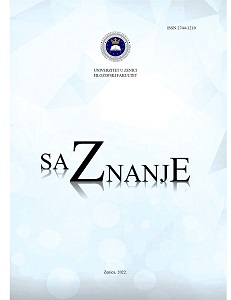SURADNIČKI ODNOSI KAO DIMENZIJA KVALITETE PREDŠKOLSKE USTANOVE
COOPERATION RELATIONSHIPS AS A DIMENSION OF QUALITY FOR PRESCHOOL INSTITUTION
Author(s): Edita Vuković Antolović, Jasmina Bećirović-KarabegovićSubject(s): Preschool education, State/Government and Education, Sociology of Education, Pedagogy
Published by: Filozofski fakultet, Univerzitet u Zenici
Keywords: communication; quality of educational practice; cooperative relations; preschool teacher; principal; professional associate;
Summary/Abstract: Good interpersonal relations among the employees are the basic pre-condition for raising the quality of work in an institution. The same applies to kindergarten employees because the quality of human relations determines the quality of educational practice as a whole. Effective collaboration decisively affects the identity and culture of the institution and represents an essential factor for the co-construction of the curriculum. In order to improve interpersonal relations, it is essential to ensure open communication among colleagues, mutual trust, sharing of responsibilities, building a common vision, continuous joint learning and striving for excellence. This paper presents the results of research regarding the opinions of preschool teachers, principals and professional associates on the common denominators of successful collaborative work, the presence or absence of those denominators in their institutions, as well as possibilities of improving human relations in their respective work communities. The research was conducted by means of questionnaires and graded satisfaction scales in nine Zenica-Doboj cantonal kindergartens to obtain the opinions of employees on the topics like common development vision, the quality of teamwork, mutual understanding and respect, degree of freedom in decision-making, quality of communication, preschool management style and other important prerequisites for successful cooperation. The main focus of the research is respondents' satisfaction with the level of interpersonal relationships in the institution, as well as their suggestions for potential improvements. The results indicate a high degree of acceptance and security, but also reveal widely diversified responses related to individual views, values and visions, which play a major role in open and honest communication, exchange of ideas and group reflection. The majority of respondents expressed their dissatisfaction with cooperative relations and demanded a greater involvement in decision-making. The results indicated that both the founders and all employees should be aware of their respective roles in creating a positive collaborative atmosphere. Potential solutions are to be found in more successful teamwork, fair distribution of responsibilities, education in communication skills and joint problem solving.
Journal: saZnanje
- Issue Year: 3/2022
- Issue No: 3
- Page Range: 636-651
- Page Count: 16
- Language: Bosnian

